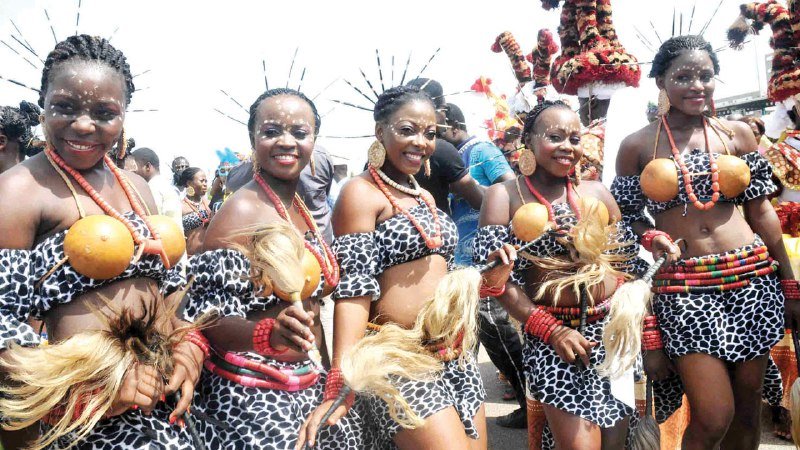By Nnenna Joseph
In Ohafia, Abiriba, Nkporo and Edda in Abia state and Ebonyi respectively, a woman owns a child. As an indigene of the community, you grow up to realize that your primary extended family is your mother’s family members while your father’s are secondary. This is the immediate introduction to the matrilineal family system of the Ohafia, Nkporo, Abiriba and Edda communities called “Isi Ikwu Nne”
In a typical matrilineal family, the mother owns the child, her (the mother’s) family have their primary responsibility with her children.
Before the advent of Christianity and education, the matrilineal culture was handed down from generation to generation from creation. The history of this age-long cultural practice is unclear, but indicators show it has been in existence since time immemorial.
A historian traced its social origin to when men from these communities went to war, they left the women with the children which were mostly taken care of by the woman and her family members.
To decipher the modus operandi of the matrilineal cultures and how it functions, we will use a hypothetical family of Mr. and Mrs. Kalu who have 2 female children Ada and Ori.
These children in intent and purpose belong to their mother- Mrs. Kalu, Mrs. Kalu’s siblings, relatives and extended family.
The role of Mr. Kalu in the lives of Ada and Ori is minimal, this includes catering for them as a father should.
Mr. Kalu invariably gives love, care and attention to his sister and brother’s children. Ancient Nkporo, Abiriba, Ohafia and Edda families lived and operated this way for decades.
A child can live his/her full life without knowing more than 5 relatives from his father’s descent.
Matriliny is a recognized form of kinship system where descent is reckoned through the mother’s side. Inheritance of material property may also be reckoned through the same line.
Barnard and Spencer (1996) observed that through the rules of matrilineal kinship, a man is reproduced not through his wife, but through his sisters; he inherits from his mother’s brother and rears children who will belong to his wife’s brother.
The Ohafia Igbo matriliny has these essential features:
(1) Rights are inherited basically through the maternal descent
(2) Allocation of farmlands is the sole responsibility of mothers brothers from the maternal descent
(3) Everybody belongs to the same matrilineage as his/her mother
(4) No one may belong to the same lineage as his father.
The merits of the matrilineal system stems from its ability to organize members in clusters called “Ikwu” which can be traced to several generations. The system recognizes women as the owners of the children therefore accord them the rights and privileges to own farmlands, trade and raise their children, housewife is hardly obtainable there. Unconfirmed statistics attribute women from these communities as being more industrious than most.
During bride price, a sum of money called “Ego-Oru” is set to be paid to the bride’s kindred. Where the maternal family is absent, Ego-Oru would not be received. This is as good as the marriage not holding. If the maternal family is not in support of the union, they stay away, the bride price may be received by the bride’s father, but Ego-oru won’t be received rendering the union null and void.
When a woman is divorced she moves with her children back to her father’s family. This does not mean the children do not bear their father’s name.
The sons can decide to stay back if they have come of age.
Burial rites are conducted by both families, burial cannot be conducted if both maternal and paternal of the deceased are not present.
When the properties of the deceased are distributed, it is given to the maternal lineage to distribute, not the paternal as is obtainable in most cultures.
Read Also: Female Inheritance: Supreme Court, Igbo Culture In Head-On Collision
Its advantages stern from the seeming anomaly it creates when children from these communities meet people from other communities.
These communities subsequently insist on inter marriage because the inlaw’s community would not accept the matrilineal system creating confusion and disorder in their system.
In all, we are the culture we are handed down and we love it. The people in these communities enjoy their matrilineal heritage and would not want it changed.
Post Disclaimer
The opinions, beliefs and viewpoints expressed by the author and forum participants on this website do not necessarily reflect the opinions, beliefs and viewpoints of Anaedo Online or official policies of the Anaedo Online.

